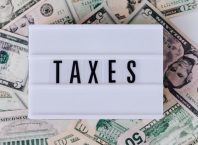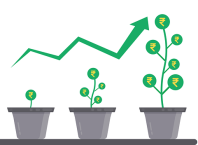Are you worried about landing in tax debt? It has been an unprecedented year. Many people who lost their jobs turned to the gig economy or self-employment, and many received government supports that turned out to be taxable. Now that tax season is over, you may be dismayed to find out that you owe the government money you don’t have.
When you owe back taxes, the government starts charging compound interest daily on any balances owing. If the balance is substantial or you continue to ignore revenue agencies, they can often take sweeping actions to collect from you, such as wage garnishments. They can also withhold benefits or credits that you could normally expect when you file.
Ignoring tax debt will only make the problem more expensive. If you find yourself owing money that you hadn’t anticipated, you need a strategy that will help you get out of tax debt quickly.
Contents [show]
File Your Taxes Even If You Owe Money
Don’t avoid filing your taxes because you’re worried you will owe money. You can file your personal income taxes on your own using tax software that simplifies the process without having to wade through complex tax forms and codes. You may also want to work with an accountant to make sure you apply for all of the credits available, helping you trim your final tax bill.
The penalties for late filing when you owe money can make the problem even worse. Just because you don’t file doesn’t mean you don’t owe the government. Never ignore the problem.
Contact the Tax Agency
Once you’ve filed your taxes, make sure you pay what you owe by the deadline, or you will have to pay further interest and penalties.
What can you do if you can’t afford to pay the government? Reach out to the tax agency to work out a payment arrangement. You will have to pay it back eventually, but a payment plan can make it more manageable.
Work with a Credit Counselling Agency
The next step will be making sure you can afford your payment arrangement. A great way to start would be to talk to a credit counsellor. A certified Credit Counsellor from a non-profit credit counselling agency can walk you through your options for paying back tax debts, as well as help you create a budget to keep you on target.
They can guide you through options like a Debt Consolidation Program (DCP). While a DCP cannot address tax debt, it can help you manage other unsecured debts like credit card balances, so that you can safely pay back your taxes in a reasonable timeframe. Your Credit Counsellor can also provide budgeting support so that you can stay on target for both your DCP and tax debt repayment. A DCP could be the best debt consolidation option if you have multiple high-interest debts and you can’t pay off the balances in full every single month.
What to Expect If You Don’t Make Payments
There are a couple of things that tax collection agencies can do if you persistently don’t make payments:
- Wage garnishment: where creditors require your employer to pay a portion of your wages directly to them.
- Bank levy: also known as a non-wage garnishment, this is when a creditor can make a withdrawal directly from your bank account. If you have money in an account, but you needed it to pay for other things, this can cause major problems.
Either of these actions can make other debt or financial problems even worse. It’s always better to be proactive when you owe money and make a payment arrangement.












